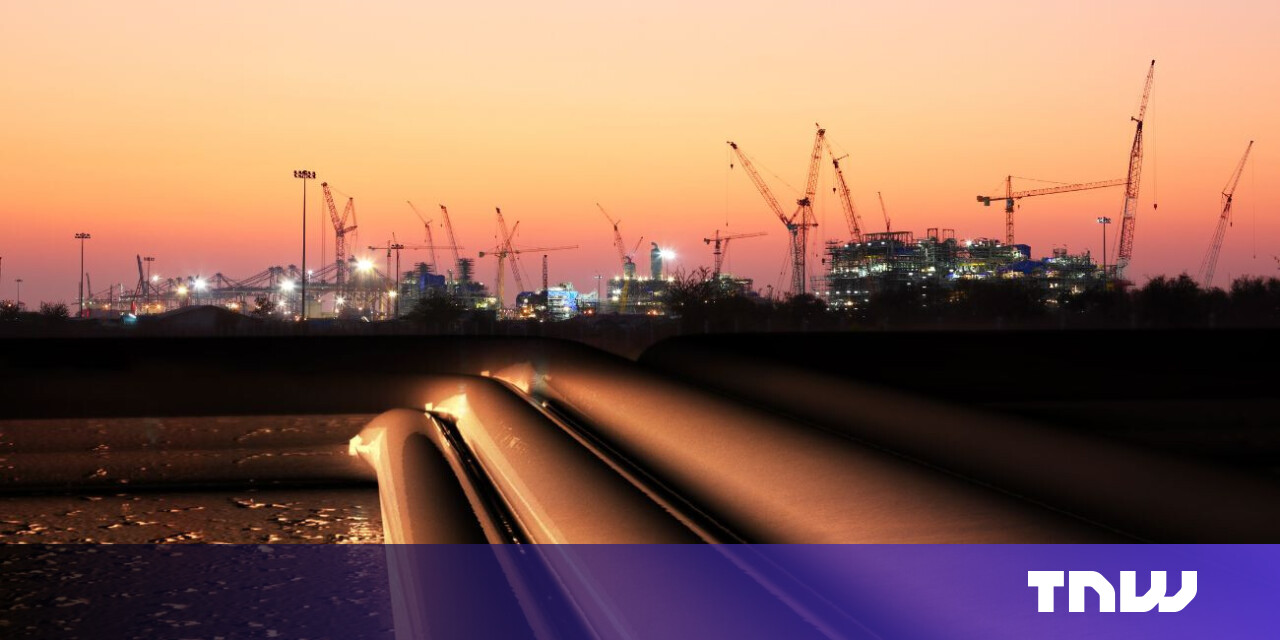
Today, the Netherlands officially began constructing a 1,200km-long hydrogen pipeline — amid a continent-wide push to wean Europe off natural gas.
The first section of the pipeline will run from the Maasvlakte — a massive man-made extension of the Europoort in Rotterdam (Europe’s largest port) — some 30 kilometres inland to a gas refinery in Pernis, run by petrochemical giant Shell. This phase is scheduled to open in 2025 at a cost of €100mn.
The ribbon-cutting ceremony was attended by the country’s King Willem-Alexander, the minister for climate and energy policy, Rob Jetten, and Han Fennema, CEO of state-run energy company Gasunie.
“The start of the construction of the hydrogen network today is an important milestone,” said Jetten earlier today. “Hydrogen is ideally suited to making our industry more sustainable and offers economic opportunities for the Netherlands as an important link in Northwestern Europe. I am proud that we are the first country to start building a national network.”
From 2030, the wider 1,200km network will connect import terminals and hydrogen production facilities with major industrial clusters in the Netherlands, Germany, and Belgium. A large chunk of the network will be made up of repurposed gas pipelines, many of which are set to become redundant as the country looks to reduce its reliance on the fossil fuel. The megaproject will cost about €1.5bn.


The plans tie into the European Hydrogen Backbone initiative, which aims to build a network of 28,000km of dedicated hydrogen pipelines by 2030, expanding to 53,000km across 28 European countries by 2040. The initiative is backed by a group of 31 energy infrastructure operators.
In 2022, hydrogen accounted for less than 2% of Europe’s energy consumption and was primarily used to produce chemical products, such as plastics and fertilisers. Some 96% of this hydrogen was produced with natural gas, resulting in significant amounts of CO2 emissions.
However, hydrogen — especially the ‘green’ variety produced by the electrolysis of water powered by renewable energy — has been identified by the EU as a key component of the bloc’s future energy mix. The Union plans to produce and import a total of 20 million tonnes of renewable hydrogen a year by 2030. (For context, one kilogram of hydrogen is the energy equivalent of one gallon (3.78 litres) of petrol). Proponents say this will help replace natural gas, powering vehicles and generating electricity.
You see, some sectors like heavy industry and transportation are almost impossible to decarbonise by electrification alone — they require an easily transferable fuel. And hydrogen, which can be used in existing natural gas networks and emits only water vapour when combusted, is the perfect candidate.
While the Netherlands and many others are furiously building new infrastructure to transport the fuel, their efforts will be futile unless the production of green hydrogen is scaled up in parallel. Currently, green hydrogen accounts for only about 1% of global hydrogen production. It is also about three times as expensive as its grey counterpart, produced from fossil fuel sources.
One solution showing great promise is wind-to-hydrogen technology, which harnesses the power of offshore wind and vast quantities of water (aka the ocean) to produce fossil-free hydrogen. The first plant of this type was opened in September off the coast of Le Croisic, France. Today it produces half a tonne of hydrogen per day. Only a fraction of what’s needed, but a notable start.





